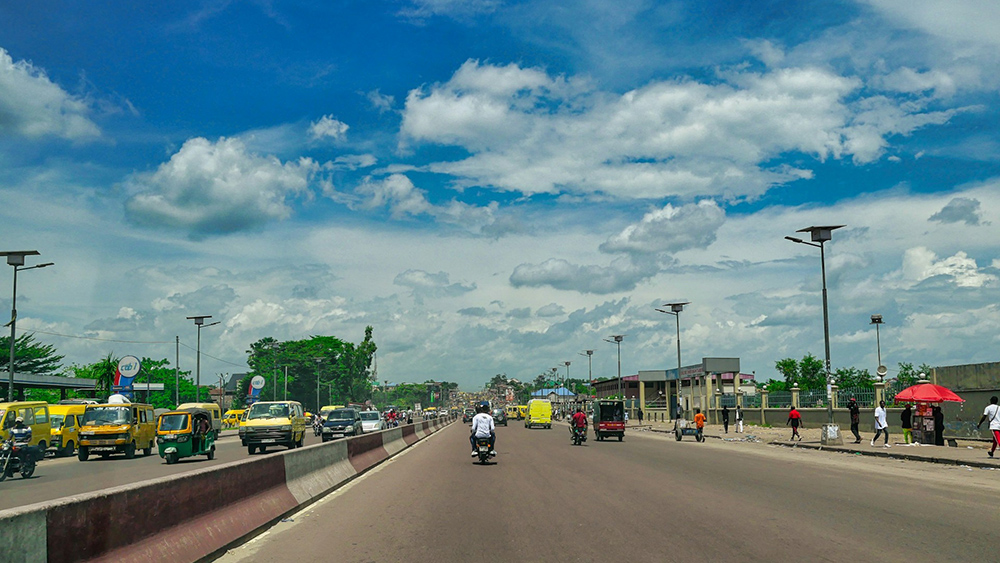ANALYSIS. Making the presidential election in DR Congo (DRC) an “organised disorder” may have been a deliberate strategy from the ruling president in his re-election campaign. A divided opposition also helped paved the way for Felix Antoine Tshisekedi Tshilombos re-election, writes Susanne Alldén and Ali Alexandre Bitenga.
This is an analysis. The opinions expressed in this article are those by the authors.
On January 9, 2024, the National Election Committee in the Democratic Republic of Congo (CENI) declared the final results of the presidential election held on December 20, 2023. Regrettably, amidst global events, the aftermath and results of the election were somewhat overshadowed. By January 12, numerous Western heads of state had extended congratulations to Felix Antoine Tshisekedi Tshilombo for his re-election. According to CENI, ”Fatshi” secured over 73% of the votes, followed by Moïse Katumbi with 18%. Martin Fayulu, widely believed to be the rightful winner of the 2018 election, only garnered 5% of the votes in 2023. Nobel Peace Prize winner Dr. Denis Mukwege received a mere 0.22% of the votes. The voter turnout was noted at 43 %.
Claims of election fraud emerged early, with concerns raised on December 20 about issues with voting machines, voters facing difficulties finding their names in the registry, missing voting machines, and ill-equipped voting offices, among otherchallenges. The election day was extended in some locations for five days. Observers and journalists also alleged widespread use of pre-programmed voting machines and the installation of voting machines in the homes of USN candidates (the coalition which includes the president’s party, UDPS). The results faced opposition from the nine opposition candidates, calling for annulment.
Congo researcher Jason Stearns, founder and strategic adviser to the Congo Research Group (CRG), contends that despite being a historic event as the fourth national election since 2006, the elections were ”hardly a victory for democracy.” However, it marked the first time the Diaspora could vote and the first time local elections were organized.
The electoral campaign’s rhetoric, particularly from the governing coalition, the Sacred Union for the Nation (USN), was notably harsh. Accusations were directed at candidates Denis Mukwege and Moïse Katumbi for not being sufficiently ”Congolese”, allegedly due to their support from outside the DRC. Dr. Mukwege was perceived as a ”man of the West,” while Katumbi faced questions about his nationality and mixed origin. Katumbi is the son of a Jewish Italian father and of a Zambian mother who settled in Katanga a long time ago. For many pro-Fatshi politicians Katumbi’s mixed origin, coupled with the fact that he is married to a Burundian woman, would be seen as handing over the country’s leadership to the hands of a foreigner. Fatshi used this fear during his own campaign, declaring that he was a candidate of “pure Congolese blood” born of a Congolese father and mother. Not voting for candidates such as Katumbi and Mukwege thus became an expression of contestation to Western rule and to neo-colonialism.
Felix Tshisekedi also utilized nationalist rhetoric, accusing Rwanda and President Paul Kagame of supporting terrorist movements in eastern DRC, particularly M23. His promise to declare war against Rwanda if support continued won him admiration and votes, especially in the east.
Denis Mukwege’s unfamiliar campaign discourse
Tshisekedi’s engagement of local leaders and politicians throughout the country, coupled with logistical advantages during the campaign, further solidified his position. Fatshi was pragmatic and understood concretely the political culture of the DRC which works hand in hand with endemic corruption and patrimonialism. Without these two essential ingredients of the Congolese politics, winning elections is impossible and an unrealistic dream. The candidacy of Denis Mukwege illustrates this well. He brought an unfamiliar campaign discourse, rejecting systematic corruption and refusing to pay people to attend his campaign meetings. When he announced his candidacy, he stated that he could promise the Congolese a different type of politics. When asked what he said to people criticizing him for having limited political experience, he responded that it might not be a bad thing seeing how current politics had messed up the country so far. Asked to reflect on his rather poor election result, he stated:
“I did my part. The people have decided otherwise. I respect its direction. But a people who allow themselves to be corrupted, who do not denounce injustice and who applaud their tormentors without resisting, are accomplices in their own slavery and should assume the consequences”.
The way the candidates ran, or were allowed to run, their campaigns, is also believed to have made the difference. Some say that the greatest opposition to the opposition was the opposition itself, not backing one main opposition candidate. While several opposition candidates ended up backing Moïse Katumbi, Martin Fayulu and Denis Mukwege decided to run separate campaigns. While Denis Mukwege may have hoped to be the common candidate of the opposition, the game became extremely complicated when Matata Mponyo and other candidates rallied with Katumbi, and Fayulu decided to move forward alone. This dispersion of opposition candidates favored Fatshi and the ruling coalition. In 2018, Martin Faylu had the backing of several political heavyweights, such as Katumbi who were in exile and not allowed to run, Adolphe Muzito, and Jean-Pierre Bemba. However, in 2023 Fayulu did not have the support of these opposition leaders which seriously lowered his chances to be elected.
A divided opposition
And while the opposition was divided, Felix Tshisekedi engaged local kings, ministers, public servants, and governors to speak on his behalf throughout the country. While opposition candidates needed to travel separately in person in different places, Fatshi did not need to do so as he had influential politicians’ campaigning for him everywhere from major cities down to the smallest village of the DRC. In addition, while Fatshi and his coalition had five planes at their disposal during the campaign, opposition candidates such as Fayulu and Mukwege were dependent on regular planes to travel. As it also happens, several flights were cancelled during the electoral campaign period due to “technical control and some special licenses from the government”. There are also accusations of Fatshi’s team buying all fuel reserves so that public planes could not fly seriously restricting opposition candidates’ attempts to travel. Only Katumbi survived this trap as he had his own plane. An influential pro-Fatchi politcian of South Kivu Basengezi Kantitima warned Mukwege and Fayulu that Congolese politics is not beans; it is the art of trapping competitors.
Yet, while the 2023 presidential elections were ”a gigantic, organised disorder”, as stated by Cardinal Fridolin Ambongo of the Catholic Church, this may have been a deliberate strategy. In DRC it is common knowledge that a sitting president does not run for re-election to lose. Thus, winning is needed, at every cost. However, despite serious irregularities being detected during the actual election, Monsignor Donatien Nshole, Secretary General of the National Episcopal Conference of Congo states that “one candidate was largely voted before others” and this was Felix Tshisekedi. This also corresponds to pre-electoral surveys.
In summary, Tshisekedi’s strategic approach, combining local alliances, anti-Rwandan discourse, and adept corruption tactics, secured his victory. The opposition’s decision to run separately with limited means, amidst a context of entrenched corruption, resulted in a significant loss.
Susanne Alldén
Senior lecturer and researcher in peace and development studies, Linnaeus University who worked in DRC 2010-2019.
Ali Alexandre Bitenga
Independent researcher, based in Bukavu, DCR.
Read also


